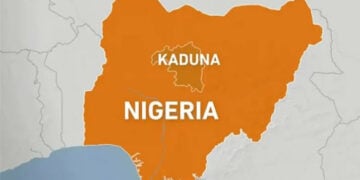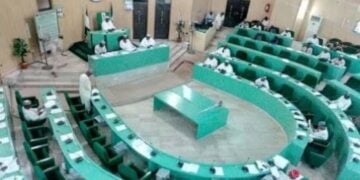Borno State governor, Babagana Umara Zulum, has directed the head of service, Barr. Mallam Fannami, to ensure that the biometric data of all staff employed in the state civil service are captured before the end of February.
Governor Zulum gave the directive on Tuesday in Damasak town when he interacted with teachers from Zanna Umarti Primary School and Government Secondary School.
Zulum said he had issued a directive for the termination of the current biometric data capture process by the end of this month. He also directed that other means of authenticating information from civil servants should be devised immediately.
“This issue of biometrics is becoming worrisome. Once someone has a BVN or NIN, I think it is okay. We have to stop these biometrics. Head of the service, you have to take note that all biometric exercises should be concluded before the end of February. From March 1st, no more biometric exercise,” Zulum said.
He added, “We have many methods of identifying duplication in the system. Once someone has a valid account number and BVN is linked, and has an NIN, any anomaly can be identified.
“Convey my approval to the Ministry of Finance and the biometric unit that all pending exercises should be concluded by the end of February.”
Governor Zulum expressed dismay that the biometric exercise subject civil servants to undue stress, particularly teachers who have to leave their duty posts in order to meet deadlines.
Meanwhile, Borno State governor, Babagana Umara Zulum, has blamed the recent landmines attacks on highways in the state and vandalization of powerlines and other critical government infrastructures on saboteurs and beneficiaries of Boko Haram insurgency.
The governor stated this on Tuesday shortly after the distribution of about N100 million and wrappers to 20,000 women, comprising victims of Boko Haram insurgency who fled some local government areas of Northern Borno to Niger Republic but returned to the state in the aftermath of the Niger Republic coup detat, as well as thousands of resettled internally displaced persons (IDPs ) from communities in Mobbar local government area.
Damasak, headquarters of Mobbar LGA at the border of Niger Republic, which is an agrarian town known for large scale farming of onions, rice , fish and cattle rearing, is one of the local government areas worse hit by the Boko Haram insurgency, but with the relative peace returning there in the past two years, residents are returning and continuing their farming activities.
Speaking further, Governor Zulum said he was in Damasak to examine the refugees that returned from Niger Republic after the coup detat following reports that many of the returnees don’t have shelter.
“So, we are here to provide palliatives to them and in addition, we decided to extend the gesture to the entire vulnerable women in Damasak. The military coup has affected the border communities especially, Abada, Kukawa and Guzamala local government areas. These local government areas are seriously affected by the Niger crisis.
“By now, we would have resettled the IDPs from those local government areas to their ancestral homes, but for the ongoing crisis, we have not been able to do so. However, I am optimistic that the crisis will be resolved. I am sure that the federal government will create alternative means, so that the Nigerian military will take over border areas linking Niger so that our people can be resettled,” the governor said.
We’ve got the edge. Get real-time reports, breaking scoops, and exclusive angles delivered straight to your phone. Don’t settle for stale news. Join LEADERSHIP NEWS on WhatsApp for 24/7 updates →
Join Our WhatsApp Channel









